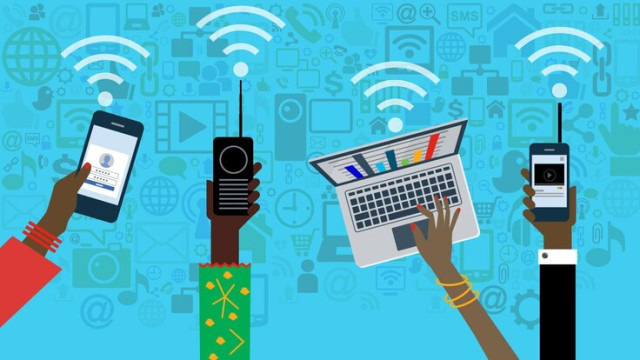The Groupe Special Mobile Association (GSMA), representing mobile operators worldwide said only 29% of Nigerians enjoy regular access to mobile internet, leaving a staggering 71% disconnected from this essential service.
This revelation emerged from GSMA's Digital Economy Report focusing on Nigeria, shedding light on various industry challenges that hinder the expansion of telecom coverage across the nation.
According to the report, these challenges have resulted in a significant digital divide, highlighting the urgent need for Nigeria to establish an enabling policy and regulatory framework to unlock the full potential of its digital transformation.
The GSMA emphasized the critical importance of such measures, aligning with Nigeria’s Strategic Plan 2023 – 2027 and the Federal Ministry of Communication’s National Broadband Alliance for Nigeria (NBAN).
The GSMA stressed that achieving a comprehensive digital transformation of Nigeria's economy hinges on ensuring universal access to digital connectivity, a goal that remains elusive without substantial reforms.
In an optimistic projection, GSMA suggested that Nigeria could potentially add 15 million internet users by 2028 through strategic policy interventions. However, the current scenario reflects significant untapped potential, with 71% of Nigerians lacking regular access to mobile internet services.
The association highlighted key obstacles hindering progress, including the complex and costly process of securing Rights of Way (RoW), which significantly delays infrastructure deployment and inflates associated costs.
Moreover, GSMA underscored the complexities of Nigeria's tax environment, which imposes high and escalating costs of tax compliance due to overlapping tax structures within the country. These challenges pose a formidable barrier, making it increasingly difficult for the industry to maintain sustainable levels of investment.
Quoting directly from the report, GSMA stated, “Increasing costs are making it difficult for the industry to maintain sustainable levels of investment. The primary driver of this has been increases in the cost of power for sites due to the rapid increases in the price of fuel, increased government fees and levies, and increased demand for forex, in an import-dependent environment, due to contractual obligations for network infrastructure and services that are denominated in USD.”
The GSMA's report serves as a clarion call for comprehensive reforms and strategic interventions to bridge the digital divide in Nigeria and accelerate the nation's digital transformation journey.




















